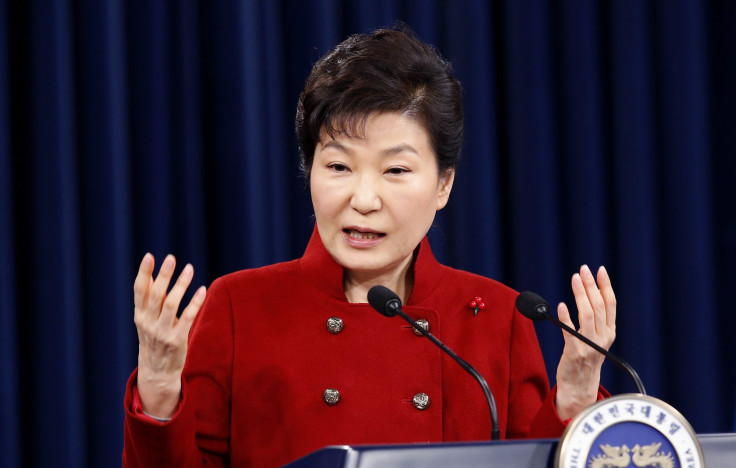South Korea's Park Proposes Amending Constitution

South Korean President Park Geun-hye on Monday proposed amending the country's constitution to allow presidents to serve multiple terms or to establish a parliamentary system, saying the single-term presidency has served its purpose.
The presidency was limited to a single five-year term in the 1987 constitutional amendment that ended the country's military dictatorship, but that has become an obstacle to the country's further developments, Park said.
"Through the single-term presidency, it is difficult to maintain policy continuance, see results of policy and engage in unified foreign policy," Park said in an address to parliament.
Park, the first woman to be elected president of South Korea, is in the fourth year of a term ending in February 2018.
A Realmeter poll released in June found 70 percent of South Koreans think the existing constitution should be revised and 40 percent say allowing a president to serve two four-year terms would be more desirable.
President Park requested parliament to form a special committee immediately to start discussions for revising the constitution.
In South Korea, the president or parliament can propose an amendment, which has to be approved by a two-thirds majority in the single-chamber assembly, and then accepted in a national referendum.
"I've reached a conclusion that we can no longer delay discussing amending the constitution, which was also my campaign promise, to break down limits we face in the big picture for the Republic of Korea's sustainable development," Park said.
Despite broad public consensus about the need to change the constitution, it is not clear how debate over constitutional reform will play out, with political power in South Korea split between a powerful presidency and a fractious parliament.
Other politicians besides Park have also been calling for a two-term presidency to allow for more stable implementation of long-term policy.
Critics of a strong presidency want to create a parliamentary system in which a prime minister would have more executive power than the country's president.
© Copyright Thomson Reuters 2024. All rights reserved.











